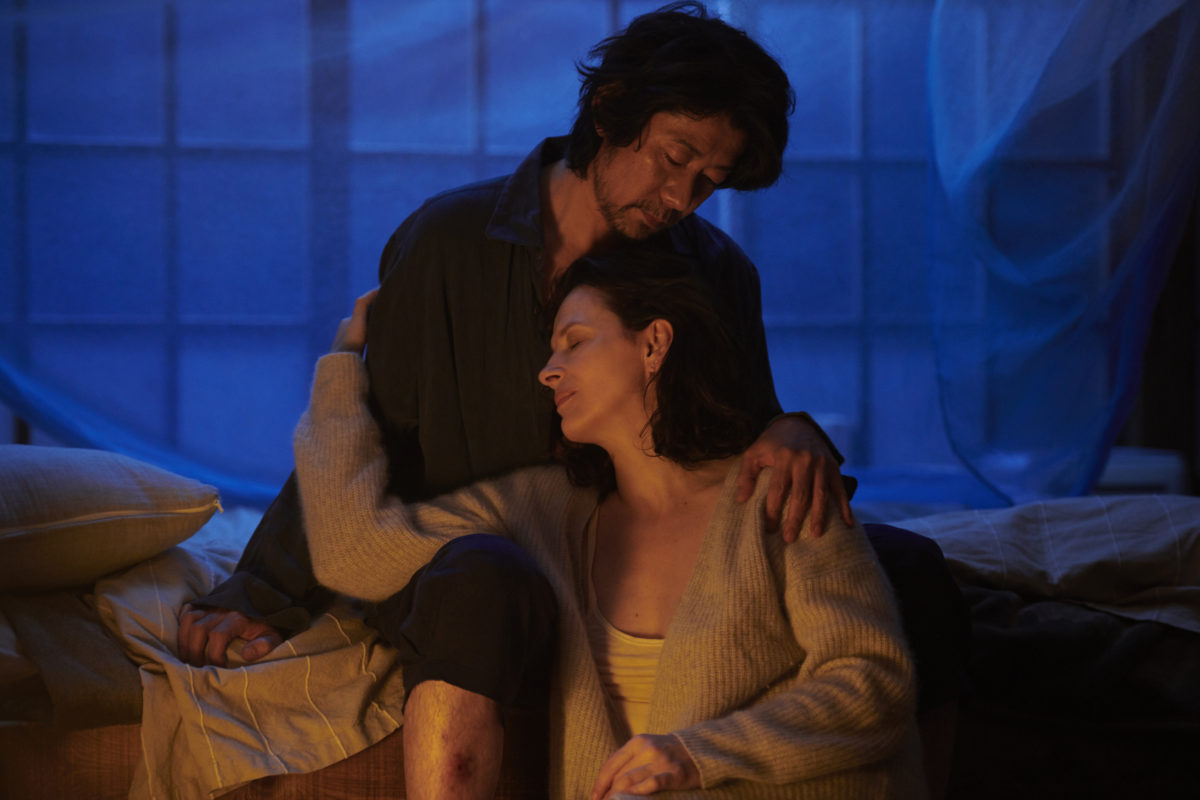Naomi Kawase’s tenth feature Vision (2018) starts off gently, with stunning images of Japanese forests and the woman (Juliette Binoche) backpacking through them. She is a French writer who travels to the beguiling Yoshino mountains of Nara in order to find a fungus called ‘Vision’ that can heal weakness, fear and pain, but only appears every millennium. During her quest, she meets a quiet lumberjack who shelters, helps, and fucks her (after this and Claire Denis’s High Life (2018), I need a break from Binoche’s orgasmic facial expressions).
Roughly halfway through, the film drifts away from its relatively low-key enigmatic quality and the aforementioned quasi-sensual relationship. In the tradition of Kawase’s spiritualistic poetics and nature-bound emotional expressionism, it goes completely bonkers, maximizing the mythical mysteriousness and unleashing the whimsical pseudo-poetic gibberish Binoche’s characters seems prone to (e.g. a completely random “Love is like the waves, it never stops. It’s stillness and movement together. It’s so still.”). Eventually, the characters all seem to have been granted unlimited access to the world’s secrets, on the condition that they consistently whisper them erotically in a faux-intellectual and quasi-illiterate way.
While Vision’s radiant postcard-like visuals are often of great beauty, it’s unclear why anything happens, really, or why the characters are still allowed to talk. The film contains an extravagant amount of gratuitous magic and nightmare-material monologues, resulting in a confusing cringe fest that transcends nothing but my will to sit through it.
